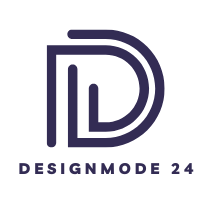The year 2021 marked a pivotal moment in financial history, with the GameStop short squeeze capturing the attention of millions worldwide. With a blend of internet culture, retail trading, and hedge fund manipulation, this incident stirred widespread discussions. Key phrases like “GameStop February October Irwin decrypt” have emerged as part of this phenomenon, with their meanings and connections representing the unique aspects of the event. In this article, we’ll break down these terms, explore their relevance, and provide insights into how they fit into the broader GameStop story.
The Rise of GameStop and the Power of the Retail Investor
To understand the significance of “GameStop February October Irwin decrypt,” it’s important to first explore the events surrounding GameStop’s meteoric rise in early 2021. GameStop, a struggling video game retailer, was heavily shorted by institutional investors, particularly hedge funds, who believed that the company’s stock was overvalued and would eventually collapse. This practice of short selling involves borrowing shares to sell them at current prices, with the intention of buying them back at lower prices when the stock declines. However, these investors underestimated the power of retail traders on platforms like Reddit.
The GameStop Short Squeeze: A Reddit Revolution
In early 2021, retail investors, predominantly from the Reddit community r/WallStreetBets, began buying up GameStop shares, driving the price up. This unexpected rise in the stock price caught short sellers off guard, leading to what’s known as a “short squeeze.” A short squeeze occurs when short sellers are forced to buy back shares at higher prices to cover their positions, further driving the stock price upwards.
The GameStop short squeeze became a cultural phenomenon, with the stock price reaching an all-time high of $483 in late January. It wasn’t just about making money; it was a statement against the traditional financial system. Retail investors felt they were sticking it to Wall Street, fighting back against the powerful hedge funds that controlled much of the market.
February and October: Two Key Dates in the GameStop Saga
The key phrase “February October” likely refers to two pivotal months in the GameStop story. These months represent critical points in the timeline, and understanding their significance is crucial for decoding the broader GameStop event.
February: The Aftermath of the Short Squeeze
By February 2021, GameStop’s stock had already experienced its historic rise. However, the volatility wasn’t over. After peaking in late January, GameStop’s stock price plummeted, and retail investors were left trying to manage their positions. In February, the stock experienced extreme fluctuations, and the situation was exacerbated by trading restrictions placed by brokerage firms like Robinhood, which halted trading in GameStop shares. This sparked outrage among retail investors, leading to Congressional hearings and further public discussion about market manipulation and the role of institutional players.
The February period was also marked by the emergence of new tactics to stabilize the stock. Retail investors, spurred by the initial success, began to form tighter-knit communities and use social media platforms to organize buy-ins. Despite the stock’s fall from its peak, GameStop was now firmly in the public consciousness, and the narrative around it was evolving. People started asking bigger questions about the future of investing and whether the power dynamics between retail investors and Wall Street had shifted permanently.
October: The Long-Term Impact and Legacy of GameStop
Fast forward to October 2021, and GameStop was no longer just a meme stock—it had evolved into a symbol of the potential for decentralized finance. After the short squeeze, the company’s stock price stabilized, but it didn’t return to its previous, lowly levels. In fact, GameStop began to pivot towards a new business model under the leadership of Ryan Cohen, a co-founder of Chewy, who became GameStop’s chairman. The company began exploring the potential for blockchain technology and cryptocurrency integration into its operations, and it was clear that GameStop was attempting to reinvent itself in the digital age.
By October 2021, GameStop’s stock had settled into a more stable range, but the impact on the broader financial ecosystem was clear. Many believed that the stock’s rise and the retail investors’ involvement had ignited a new era of market participation, where retail investors could wield significant influence.
Irwin Decrypt: The Mysterious Connection
The phrase “Irwin Decrypt” may seem like a cipher, but it holds connections to the world of finance and technology. While the exact origins of the term in relation to GameStop are somewhat unclear, it could be interpreted as a reference to the ongoing digital transformation of the financial sector, particularly in areas like cryptocurrency and blockchain.
Irwin: Decoding Market Movements
“Irwin” may refer to a figure or entity in the financial or cryptocurrency space—someone or something that is working to decrypt or understand the forces driving the market. In the context of GameStop, this could symbolize the process of unpacking or interpreting the complexities of the market’s reaction to the short squeeze and retail investors’ influence. By February and October, the financial community, including analysts and traders, had to “decrypt” or make sense of what was happening with GameStop.
Decrypt: The Role of Cryptocurrencies and Blockchain
The word “decrypt” ties directly into the world of digital finance. As mentioned earlier, GameStop’s leadership had begun exploring blockchain technology as a means of revolutionizing its operations. Cryptocurrencies and decentralized finance (DeFi) were rapidly gaining attention as potential disruptors of traditional finance, and GameStop’s foray into this area was a sign that the company recognized the shift.
Blockchain and cryptocurrency are built on the idea of decentralization, allowing individuals to trade, invest, and interact without intermediaries like banks or traditional exchanges. This concept was echoed by the actions of GameStop’s community of retail investors. The idea that people could “decrypt” the financial system, gaining control over their investments without needing to rely on institutional players, was a driving force behind the GameStop saga.
The Social and Cultural Impact of GameStop
While the financial aspects of GameStop’s story are critical, it’s also important to consider the cultural impact. The GameStop saga empowered millions of small investors, showing them that they could take on Wall Street and win. The “February October Irwin decrypt” phrase embodies this newfound sense of agency, with its cryptic, digital overtones signaling the evolution of finance in the age of the internet.
This shift was also evident in how retail investors began organizing through online platforms like Reddit, Discord, and Twitter. These communities shared tips, strategies, and memes, building a collective identity that was resistant to the norms of traditional investing. The GameStop short squeeze demonstrated the power of online collaboration, social media, and a grassroots movement that could challenge the old guard.
The Future of Retail Investing and GameStop’s Legacy
GameStop’s journey doesn’t end with its stock price. The company’s role in shaping the future of retail investing and decentralizing finance is far from over. In fact, its efforts to incorporate blockchain and cryptocurrency could position it as a leader in the next wave of financial innovation. With the continued rise of decentralized finance and the growing interest in blockchain technology, GameStop’s legacy may continue to unfold over the next several years.
In many ways, the GameStop phenomenon represents a larger trend in finance. Retail investors, empowered by technology and social media, now have the ability to disrupt traditional markets in ways that were once unthinkable. The term “Irwin decrypt” may become synonymous with the new era of financial literacy, where anyone with an internet connection can learn, invest, and influence the market.
Conclusion
The phrase “GameStop February October Irwin decrypt” encapsulates a fascinating moment in the intersection of finance, technology, and culture. From the explosive short squeeze in January to the aftermath and long-term impact seen in February and October, GameStop’s story is one of disruption and transformation. Whether it’s the retail investors reshaping Wall Street or the company’s pivot toward blockchain technology, GameStop has left an indelible mark on the financial world.
In a broader sense, this saga speaks to the power of decentralized finance and the ability of individuals to come together and challenge established systems. As GameStop continues to explore new avenues for growth, the story of the short squeeze and the rise of retail investors is far from over. As we move into the future, phrases like “Irwin decrypt” may take on even greater significance in the unfolding story of finance and technology.





